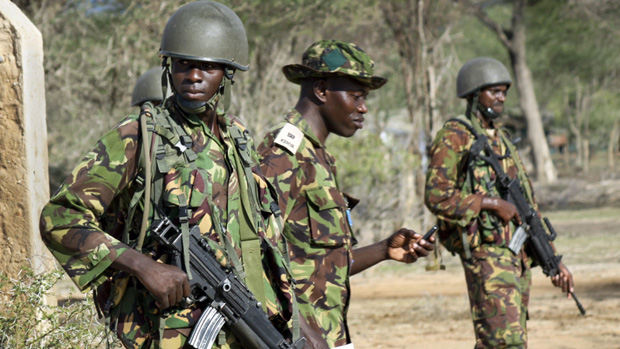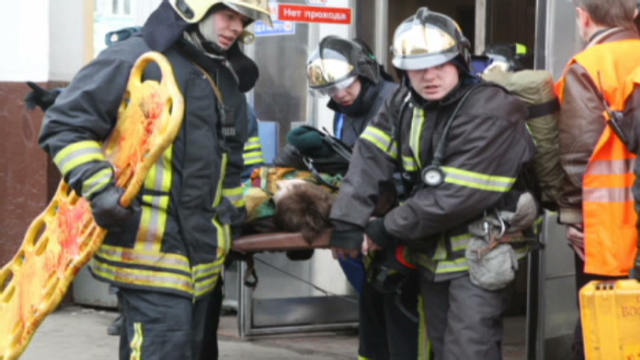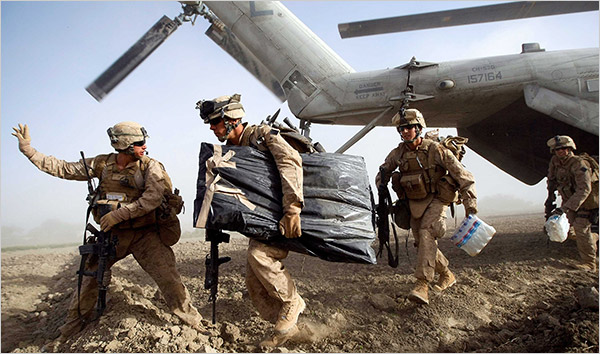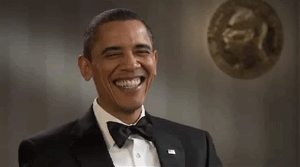Well, the Outback is quite large, and large areas means the fascist police state cannot perform as well there.Huh?
Who says they have to control every inch? As long as there isn't something like an open rebellion, I'm sure the government would be alright with the Outback.
Seeing as fascism tends to nationalism, some form of "rugged Outback Australian identity" might just be encouraged by the government as a form of patriotism.
You are using an out of date browser. It may not display this or other websites correctly.
You should upgrade or use an alternative browser.
You should upgrade or use an alternative browser.
Hammer's, Sickle's, and Mushroom Clouds. the Story of the Reverse Cold War
- Thread starter Kaiser K
- Start date
- Status
- Not open for further replies.
Zeldar155
Banned
Well, the Outback is quite large, and large areas means the fascist police state cannot perform as well there.
I doubt those areas are as important as policing the populated areas like Sydney etc.
I doubt those areas are as important as policing the populated areas like Sydney etc.
Right on the money here, policing the Outback is unimportant, as that would just take more men out of the city's, where you actually need men to police.
Anyway.. I've started work on the next update, It will be up sometime in the forseeable future. or whenever I feel like it.
Sorry if this has been mentioned before, but perhaps a rendition of Billi Dzhoel's (Billy Joel) hit song 'My ne nachinali ogon' (We didn't start the fire)?
Sorry if this has been mentioned before, but perhaps a rendition of Billi Dzhoel's (Billy Joel) hit song 'My ne nachinali ogon' (We didn't start the fire)?
Actually, that would be a pretty good thing to come up with, but I would have to have help to somehow compile the lyrics to match with RCW events.
“In the Brotherhood of Islam, the Socialist ideal unites all sons and daughters of Allah, the Arab people are a strong and undividable people, we seek the one true call, to stand up against the corrupt influence of the Eastern dogs dogs, to ensure the Arab people's freedom and the integrity of our culture, to create our own destiny, we will not be slaves to the decadent East, we will not be slaves to Slavic dogs or Turkish heretics, the true believers of Allah and his mortal messenger, Muhammad, untied the Arab People under the banner of unity and freedom!."
Kenyan President Barack Obama, speaking about the Kenyan intervention in the Yemeni Civil War.
Kenyan President Barack Obama, speaking about the Kenyan intervention in the Yemeni Civil War.
But seriously, Barack Obama Sr. converted to Anglicanism at the age of six and later became an atheist; I don't think Obama Jr. would become a muslim again.
The POD is before Obama Sr.'s birth Zeldar, so it's a different Obama Sr. who stayed a Muslim, and thus Obama Jr. our Obama, became a Muslim as well
Zeldar155
Banned
The POD is before Obama Sr.'s birth Zeldar, so it's a different Obama Sr. who stayed a Muslim, and thus Obama Jr. our Obama, became a Muslim as well
Then his name wouldn't be Barack, since he changed his name when he converted.
Then his name wouldn't be Barack, since he changed his name when he converted.
Obama's father was named Hussein ITTL.
List of Russian Presidents since 1917
00. Alexander Kerensky (Leader of Provisional Government), 1917-1921
01: Alexander Kerensky (National Republican) 1921-1933
02: Leon Trotsky (Social Democratic) 1933-1945
03: Faddey Trepov (Social Democratic) 1945-1953
04: Gregory Zhukov (National Republican) 1953-1961
05: Alec Bochka (Social Democratic) 1961-1963
06: Nikita Khrushchev (Social Democratic) 1963-1969
07: Leonid Brezhnev (National Republican) 1969-1974
08: Anastas Mikoyan (National Republican) 1974-1977
09: Konstantin Chernenko (Social Democratic) 1977-1981
10: Pyotr Demichev (National Republican) 1981-1989
11: Valentin Pavlov (National Republican) 1989-1993
12: Alisha Zolnerowich (Social Democratic) 1993-2005
13: ????????????????? (National Republican) 2005-2***
00. Alexander Kerensky (Leader of Provisional Government), 1917-1921
01: Alexander Kerensky (National Republican) 1921-1933
02: Leon Trotsky (Social Democratic) 1933-1945
03: Faddey Trepov (Social Democratic) 1945-1953
04: Gregory Zhukov (National Republican) 1953-1961
05: Alec Bochka (Social Democratic) 1961-1963
06: Nikita Khrushchev (Social Democratic) 1963-1969
07: Leonid Brezhnev (National Republican) 1969-1974
08: Anastas Mikoyan (National Republican) 1974-1977
09: Konstantin Chernenko (Social Democratic) 1977-1981
10: Pyotr Demichev (National Republican) 1981-1989
11: Valentin Pavlov (National Republican) 1989-1993
12: Alisha Zolnerowich (Social Democratic) 1993-2005
13: ????????????????? (National Republican) 2005-2***
A cool beginning of the update! I will just wait and hope that the update will get continued soon!
A cool beginning of the update! I will just wait and hope that the update will get continued soon!
Just posting the usual quote excerpt ahead of time as a preview, whole thing should be up sometime today.
“In the Brotherhood of Islam, the Socialist ideal unites all sons and daughters of Allah, the Arab people are a strong and undividable people, we seek the one true call, to stand up against the corrupt influence of the Eastern dogs dogs, to ensure the Arab people's freedom and the integrity of our culture, to create our own destiny, we will not be slaves to the decadent East, we will not be slaves to Slavic dogs or Turkish heretics, the true believers of Allah and his mortal messenger, Muhammad, untied the Arab People under the banner of unity and freedom!."
Kenyan President Barack Obama, speaking about the Kenyan intervention in the Yemeni Civil War.
Chapter 35: January 1st, 2002 (La Paz, Bolivia) - January 15th, 2003 (Pretoria, South Africa)
Second Cold War
War on Terror
We Didn't Start the Fire, We Just Added More Wood
Second Cold War
War on Terror
We Didn't Start the Fire, We Just Added More Wood
The Invasion of Bolivia by Russia and it's allies had been successful in it's goal of overthrowing the corrupt Dictatorship of General Hugo Banzer and the Baptist Party, however the collapse of Banzer's regime would leave a unfillable gap of power that would potentially destabilize Bolivia for decades, as the months would go by, and the deaths of young Russian men and women continued to pile up against the increasingly stronger forces of the Awganakuyq, Many in Moscow would wonder what the Motherland was exactly fighting for anymore.
Nothing About War is Civil
African National Congress forces setting up along the frontlines near the Orange River, waiting for a SADF attack
The South African Civil War, entering it's 20th year, suddenly after two decades of fighting had a new element derail the conflict between the African National Congress and Pretoria, in the form of the Zulu Insurgency, Zulu militia, led by one Nathi Mthethwa had launched a full scale insurgency against both the warring sides in the hopes of establishing their own independent state outside of the jurisdiction of both the ANC and the remnant Union, the unexpected wrench in the conflict caught both the ANC and the SADF off guard, now both not only had to worry about each other, but with the Zulu as well, and both sides began to use up more of their remaining resources on fighting the insurgency, versus fighting insurgency, this coupled with a populace war weary after two decades of constant never ending fighting was making the situation in South Africa tenuous, many of each faction's populace despised the other side, most with a passion, but at the same time desired that they could sleep a night without the fear of being assaulted, kidnapped, raped, ethnically cleansed or murdered by the other side, and thus the ANC and Union's leaders, Nelson Mandela and Henry Pierce, who had led their faction since the beginning of the war in 1982 began to see increased scrutiny, and many elements of Afrikaner society began to actively revolt against the long term State Minister of the Union, those in charge began to realize the situation was untenable, as both sides had exhausted so many resources in the 21 years of war, it was debatable whether either side could actually continue to wage war against the other, however both sides did commit to continuing the war, as the Summer SADF offensive proved, neither side was completely out of stamina yet, and were committed to continuing until the other side was completely decimated, while the offensive itself succeeded in gaining some ground against the ANC, the political situation in Pretoria grew more unstable and tenuous as the year continued on, cultimating with the successful Assassination of Henry Pierce on January 15th of 2003, with the death of Pierce, a end to the conflict, especially with the continuing Zulu insurgency, seemed to be a distinct possibility for the first time in 21 years.

Kenyan troops move towards the Yemeni capital of Sana'a
Meanwhile somewhat North, the Yemini Civil War, triggered the power vacuum left in the country by the collapse of the Fascist government had been ongoing since Central Government control of the country had collapsed in 1991, various factions had been competing in the nation for control of the country, including Fascists, Baptist's supported by Kenya, and eventually Kenya's military upon the launch of the Kenyan military intervention in 1994, and the remnant of the Central Government, supported by the Ottoman Empire and the Emirate of Nejd, the war had been extremely destructive for the formerly economically growing country, over 1 and a half million people had died in the 12 year conflict, and the Kenyan intervention had not helped anything regarding the Yemeni conflict, however by 2002 the conflict was on the verge on ending, as the Baptists with the help of Kenya, now led by Hussein Obama's son, Barack Obama, and it's army, had slowly defeated the other factions until only they remained, capturing the last stronghold of the Central Government in the Yemeni capital of Sana'a, the Baptists assumed power in the devastated country, declaring the Yemeni Arab Republic, and signing a formal alliance with Obama's Kenya.
Old Animosity

General Leopoldo Galtieri (pictured above), has been President of Argentina since 1976
Over in South America, outside of the situation in Bolivia and Peru, tensions were a high South of that, between Chile and Argentina, long time historic rivals and mortal enemies, the 1948-1950 War between the two nations over Patagonia had pushed the two countries relationship from historic rivals to a state of intense hatred, the two sides had over the years since waged several wars (in 1959-1961, 1974 and 1976-1978) and had conducted many political duels over the Patagonian Issue during the past 60 years, the rivalry between the two countries was further amplified by the testing of the first Chilean Nuclear Weapon in 1995, and the first test of Argentina's the next spring had added the Atomic Bomb into the mix between Santiago and Buenos Aires, both sides knew they could destroy the other at a button's press, but knew such a idea would be suicidal, as was the concept of MAD, one that had prevented Nuclear War during the First Cold War and in the modern Second Cold War, however, this didn't prevent tensions and potential incidents between the two nations, as was proven in 2002, when a border incident between a Chilean and a Argentine soldier blew up into a fire fight, killing 8 soldiers, including 6 Argentinians that escalated into a incident between the two countries, almost crossing the line into a full out War between the two sides, however cooler heads prevailed in the end, and Argentina and Chile managed to get past the incident, through it would certainly not be forgotten.

Medical Personnel tending to victims in the aftermath of the Quito Subway Bombing
Elsewhere in the world, the threat of terrorism was just not confined to the continent of South America, in Ecuador, a female member of the Ecuadorian branch of the Awganakuyq launched a suicide bombing at a Subway in Quito, killing 15 people in the attack, a similar attack was attempted at the Ecuadorian Imperial Palace, but it was stopped by the Ecuadorian Army before it could be undertaken, another attack of similar nature took place in Sao Paulo, Brazil as well, killing 19 people at a local market, Terrorism was a lingering and existing threat for all nations, especially those on the South America continent who had the unfortunate nature of bordering the war torn Peru and Bolivia, allowing easy access for members of the Awganakuyq and Yachakuq to launch attacks against neighboring nations, In the aftermath of these attacks, including the 7/20 Attacks in 1999, Security Measures were increased in most nations regarding the threat of terrorism, especially at Airports and Police at the various National Border's of the world, and all nations, especially those bordering the hotbed of Terrorist activity in Latin America made it a priority to track down Terrorists and prevent further Acts of Terrorism from various Terrorist organizations.
The Definition of Insanity

the beloved Princess of Prussia, Charlotte (pictured above), was tragically killed in a car accident in downtown Constantinople
The War of Terror was not only affecting Russia, but Europe as well, especially the German Empire as well, the Social Democratic leadership of Roman Herzog had led Germany since the 1996 Reichstag elections where the party assumed leadership from Zentrum, the leadership of Herzog had been popular in it's earlier years, but it's popularity was beginning to wane as the 2002 Reichstag Elections came around, many blamed the Social Democratic decline on the decision to send German troops to invade Bolivia, but the truth was that the SPD decline was already happening before the decision to send troops to Bolivia, and the decision to invade Bolivia alongside the Russians only worsened the situation, Zentrum ran on the platform of "Are you Thinking What We're Thinking?", including promises of major economic reforms to rejuvenate the slumping German economy, immigration and hospital reform, and various other policies, many political experts predicted the downfall of the SPD come the November Reichstag elections, however the Social Democrats and Chancellor Herzog managed to retain power in the elections they however lost 61 seats in the Reichstag in the process, with Zentrum gaining the majority of the lost SPD seats, showing that the Herzog Chancellorship was a fragile one, outside of Electoral News, the German Empire was struck with tragedy when Charlotte, Princess of Prussia, mother of Prince Wilhelm and Prince Heinrich, and wife of Prince Friedrich-Charles, son of Kaiserin Viktoria I and the heir to the German throne, was unexpectedly killed in a car accident when her motorcade was hit by a speeding truck in downtown Constantinople.

Ahmet Sezer, leader of New Democracy, was elected to another term as Vizier in the 2002 Vizierial elections.
Speaking of Constantinople, the Ottoman Empire also had Vizierial elections in 2002, incumbent Vizier, Ahmet Sezar of New Democracy sought re-election for another term as Vizier, his main challenger was Deputy Vizier and Labour Party candidate, Yıldırım Akbulut, the Sezar regime had faced criticism for softness on crime, the growing poverty rate in many parts of the country, accusations of political corruption by the regime and that it's members were paid off by Influential Arab businessman and Oil Barons to disregard issues in the Turkish parts of the Empire, when it came time to vote in April, The first round of the Vizieral elections, which took place on 21 April, 2002, came as a shock to many political commentators within the Sublime State, almost all of whom had expected the second ballot to be between Ahmet Sezar and Yıldırım Akbulut. Indeed, it was tese very expectations that would ultimately lead to Akbulut's downfall in the election, with a plethora of "small party" left candidates all worked to raise their profile in the first round of the ballot, with all intending to support him in the second round, Ironically, this move led to cumulatively take enough votes away from Akbulut to (unintentionally) prevent him from reaching the second round, which he would quite probably have won. Instead Bashir Al-Assad, leader of the Far-Right National Front unexpectedly won second place and faced Sezar in the second ballot. The election brought the two-round voting system into question by many in the Sublime State, as well as raising many concerns about apathy and the way in which the left had become so divided. Sezar would however ultimately beat Al-Assad, a Alawite born Oil Baron in the second round of the ballot, securing another term as Vizier.
Elsewhere, Europe's eyes looked upon the nation of South Italy, when the Peninsular Dictatorship tested it's First Atomic Weapon on July 1st, 2002 due to fact that Apulia now possessed Weapons of Mass Destruction, throwing a new element of immense proportions to the Italian conflict, however the authenticity of the claims of the South Italian regime and Supreme Leader Antonio Il-Gramsci that they could level Berlin, Paris and Moscow with Nuclear Weapons in minutes is a highly questioned one by most.
All's Quiet on the Western Front

Russian soldiers dropping in to assault a insurgent hotspot in Eastern Peru, circa 2002
Despite the Coalition's success in assuming control of Peru and ousting the Awganakuyq regime, The Launch of the Religious "Makanajuna" (Fight in Quechua), threw a proverbial wrench in the Russians plans for Peru, the Awganakuyq and their Yachakuq allies had built up support bases from neighboring Bolivia and Chile, and a built up a army of irregular soldiers that could launch lightning guerilla attacks on Russian and Coalition Military Outposts and other targets before the Russians could truly respond, usually only taking minimal if any casualties, the style of hit and run warfare employed by Insurgent Forces in both Peru and Bolivia was a type of warfare that Russian and Coalition forces were entirely unprepared to deal with, underestimating the resolve and will of the Awganakuyq and Yachakuq in their fight against the ISAF, Russian forces began to try and shift their focus towards Counter-Insurgency fighting, tactics the Russian military hadn't employed since the Venezuelan War of the 60's and 70's, Russian and Peruvian forces after repeated Insurgent attacks in 2001, regrouped and soon launched "Operation: Wolverine", a counter insurgent operation in early 2002 in a attempt to weed out Bands of Insurgents and destroy Insurgent Camps and Training Bases, the operations were successful in weeding out several bands of insurgents across the country, including a band near the lake side town of Puno that resulted in the encircling and deaths of 124 Yachakuq fighters, However isolated Guerilla Ambushes and Rocket Attacks by Insurgents on Isolated Russian and Coalition military outposts continue to occur with intense frequency throughout the year with only minimal casualties to Insurgent forces, these attacks were increasingly frustrated Russian commanders on the ground, who were confused and irate at the continued failures on the ground against the Insurgents, further attempts at offensives against the Insurgents produced limited results for Russia and it's allies, however Russian forces did step up on training local Peruvian forces to became a credible fighting force that could fight the Awganakuyq and Yachakuq itself as well, and prepared for another year and further future operations. Elsewhere in the country, Peru prepared for it's first Democratic elections since 1976, which would take place in April of the next year.

Russian soldiers during the Second Battle of Riberalta, circa 2002
Over in neighboring Bolivia, Coalition forces had been successful in their goals of toppling Hugo Banzer's regime and removing the Baptists from power, and assuming control of the country militarily, however the power vacuum left by the end of Banzer's regime only invited trouble for Coalition forces, remaining supporters of the Baptist Party, foreign fighters from Argentina, Paraguay, Colombia, Ecuador, and Chile, as well as the Bolivian Yachakuq would form the basis of a new insurgency that would challenge Coalition control, the start of 2002 was marked by a lull in violence as the Insurgency regrouped from losses taken in 2001, as the Spring rolled around, Attacks were launched by the Insurgency against Coalition forces, targeting Coalition bases and ammo dumps, these attacks were originally only few at a time, but they increased in frequency and damage as Insurgent militias escalated the attacks, copying some of the tactics of the neighboring Insurgency in Peru, attacks on Bolivian Security Forces especially increased during the Spring, with over 67 BSF soldiers dying in Insurgent ambush attacks, a particular nasty attack occurred in June 2002, when a group of Insurgent fighters attacked four Russian paramilitary contractors who were traveling to provide security to a food catering service, the attack occurred just outside of the city Riberalta in Northern Bolivia, near the Brazilian border, their bodies subsequently beaten, set ablaze, paraded through town and then hung on a nearby bridge, the incident prompted massive moral outrage in Coalition nations, and prompted the First Battle of Riberalta in a unsuccessful attempt to pacify the city of all militant Insurgent influence, another Coalition offensive against Insurgent forces was launched in November, prompting the 46 day Second Battle of Riberalta, the battle caught the controversy of the world due to the use of White Phosphorus by Russian forces against Insurgent forces, and accusations of illegal attacks on Bolivian Civilians were made by various groups, however the Kremlin denied these accusations, stating that the White Phosphorus was used only against Insurgent militants who fought Coalition forces in the city, the Battle ended in a victory for Coalition forces, with 96 Russians and 7 Germans dead, along with over 1,300 insurgents, many from the White Phosphorus attacks, most of the city of Riberalta was completely destroyed during the Battle, however civilian casualties remained low due to the fact most of the Civilians had fled the city earlier in the year.
Despite all the bad news coming from Peru and Bolivia, a token nugget of good news did come for the Coalition forces in South America, when former Bolivian President Hugo Banzer, wanted for various charges of Crimes against Humanity from his time as President of Bolivia, was successfully apprehended on January 7th, 2003, found hiding in a village in Northern Argentina, General Banzer was subsequently transported back to La Paz to face trial for his crimes.
Last edited:
here's my attempts at lyrics to Billi Dzhoel's hit song 'My ne nachinali ogon' (We Didn't Start the Fire)
Faddey Trepov, Armenia, Red Brazil, Caponeomics
Konigsburg, Walter Winchell, Brooklyn puts on a show
Vanchevsky, Slick Leo, Studebaker, Television
North Italy, South Italy, Manya Minayev
Kamarov's, H-Bomb, Sugar Ray, Pompeii
Brando, The King And I, and The Catcher In The Rye
Zhukov, Vaccine, Murder of Sean Bean
Chibisov, Liberace, Santayana goodbye
We didn't start the fire
It was always burning
Since the world's been turning
We didn't start the fire
No we didn't light it
But we tried to fight it
Orman Brussells, Browder, Mosley and Prokofiev
Rockefeller, Antonov, Communist Bloc
Roy Cohn, Juan Peron, Toscanini, Dacron
Canaima Falls, Rock Around the Clock
Levi Strauss, Popov, Rostov's got a winning team
Big Helga, Peter Pan, Kravchenko, Disneyland
Bardot, Athens, Grozny, Lyndon J
Princess Grace, Peyton Place, Trouble in Vietnam
We didn't start the fire
It was always burning
Since the world's been turning
We didn't start the fire
No we didn't light it
But we tried to fight it
Sochi, Tomas faints, Drainage in the Red Sea
Apollo, Premier Lula, Bridge Over River Rhine
Nejd, Kâzım Orbay, Siberian baseball
Starkweather Homicide, Children of Thalidomide...
Pavel Zakharov, Ben-Hur, Space Monkey, Mafia
Bedro Hoops, Mitsubishi, Trotsky is a no-go
U2, Giovanni Gronchi, payola and Bochka
Chubby Ivan, Psycho, Germans in the Congo
We didn't start the fire
It was always burning
Since the world's been turning
We didn't start the fire
No we didn't light it
But we tried to fight it
Hemingway, Bartolette, Stranger in a Strange Land, Blast over Borneo
Dylan, Paris and the Bay of Pigs
Lawrence of Arabia, German Beatlemania
Petrograd, Petrov, Vatutin beats Krukov
Pope Paul, Malcolm X, German Politician sex
A.M.B blown away, what else do I have to say
We didn't start the fire
It was always burning
Since the world's been turning
We didn't start the fire
No we didn't light it
But we tried to fight it
Birth control, Chavez, Brezhnev back again
Moonshot, Woodstock, Hotel Zhukov, punk rock
Begin, Demichev, Terror in Uganda, Destruction on the airline
Islamists on the Suez, Americans in Peru
Wheel of Fortune, Lana Kornikova, heavy metal, suicide
Foreign debts, homeless Vets, Pot, Crack, Arthur Goetz
Hypodermics on the shore, Brazil's under martial law
Rock and Roll, cola wars, I can't take it anymore
We didn't start the fire
It was always burning
Since the world's been turning
We didn't start the fire
But when we are gone
It will still burn on and on and on and on
And on and on and on and on...
We didn't start the fire
It was always burning
Since the world's been turning
We didn't start the fire
No we didn't light it
But we tried to fight it
Faddey Trepov, Armenia, Red Brazil, Caponeomics
Konigsburg, Walter Winchell, Brooklyn puts on a show
Vanchevsky, Slick Leo, Studebaker, Television
North Italy, South Italy, Manya Minayev
Kamarov's, H-Bomb, Sugar Ray, Pompeii
Brando, The King And I, and The Catcher In The Rye
Zhukov, Vaccine, Murder of Sean Bean
Chibisov, Liberace, Santayana goodbye
We didn't start the fire
It was always burning
Since the world's been turning
We didn't start the fire
No we didn't light it
But we tried to fight it
Orman Brussells, Browder, Mosley and Prokofiev
Rockefeller, Antonov, Communist Bloc
Roy Cohn, Juan Peron, Toscanini, Dacron
Canaima Falls, Rock Around the Clock
Levi Strauss, Popov, Rostov's got a winning team
Big Helga, Peter Pan, Kravchenko, Disneyland
Bardot, Athens, Grozny, Lyndon J
Princess Grace, Peyton Place, Trouble in Vietnam
We didn't start the fire
It was always burning
Since the world's been turning
We didn't start the fire
No we didn't light it
But we tried to fight it
Sochi, Tomas faints, Drainage in the Red Sea
Apollo, Premier Lula, Bridge Over River Rhine
Nejd, Kâzım Orbay, Siberian baseball
Starkweather Homicide, Children of Thalidomide...
Pavel Zakharov, Ben-Hur, Space Monkey, Mafia
Bedro Hoops, Mitsubishi, Trotsky is a no-go
U2, Giovanni Gronchi, payola and Bochka
Chubby Ivan, Psycho, Germans in the Congo
We didn't start the fire
It was always burning
Since the world's been turning
We didn't start the fire
No we didn't light it
But we tried to fight it
Hemingway, Bartolette, Stranger in a Strange Land, Blast over Borneo
Dylan, Paris and the Bay of Pigs
Lawrence of Arabia, German Beatlemania
Petrograd, Petrov, Vatutin beats Krukov
Pope Paul, Malcolm X, German Politician sex
A.M.B blown away, what else do I have to say
We didn't start the fire
It was always burning
Since the world's been turning
We didn't start the fire
No we didn't light it
But we tried to fight it
Birth control, Chavez, Brezhnev back again
Moonshot, Woodstock, Hotel Zhukov, punk rock
Begin, Demichev, Terror in Uganda, Destruction on the airline
Islamists on the Suez, Americans in Peru
Wheel of Fortune, Lana Kornikova, heavy metal, suicide
Foreign debts, homeless Vets, Pot, Crack, Arthur Goetz
Hypodermics on the shore, Brazil's under martial law
Rock and Roll, cola wars, I can't take it anymore
We didn't start the fire
It was always burning
Since the world's been turning
We didn't start the fire
But when we are gone
It will still burn on and on and on and on
And on and on and on and on...
We didn't start the fire
It was always burning
Since the world's been turning
We didn't start the fire
No we didn't light it
But we tried to fight it
Last edited:
Q-Bam map of Europe at the height of the Axis advance in Europe during WW2 (Poland's border is slightly wrong, as I couldn't get it to look right, and this map is before Bulgaria invaded the Ottomans, but it works)
EDIT: ugh, and Iceland should be French.
I also didn't put the French "Etatcommissariats" it planned to carve out of Germany and Switzerland on the map yet

EDIT: ugh, and Iceland should be French.
I also didn't put the French "Etatcommissariats" it planned to carve out of Germany and Switzerland on the map yet
- Status
- Not open for further replies.
Share:
